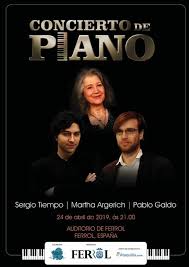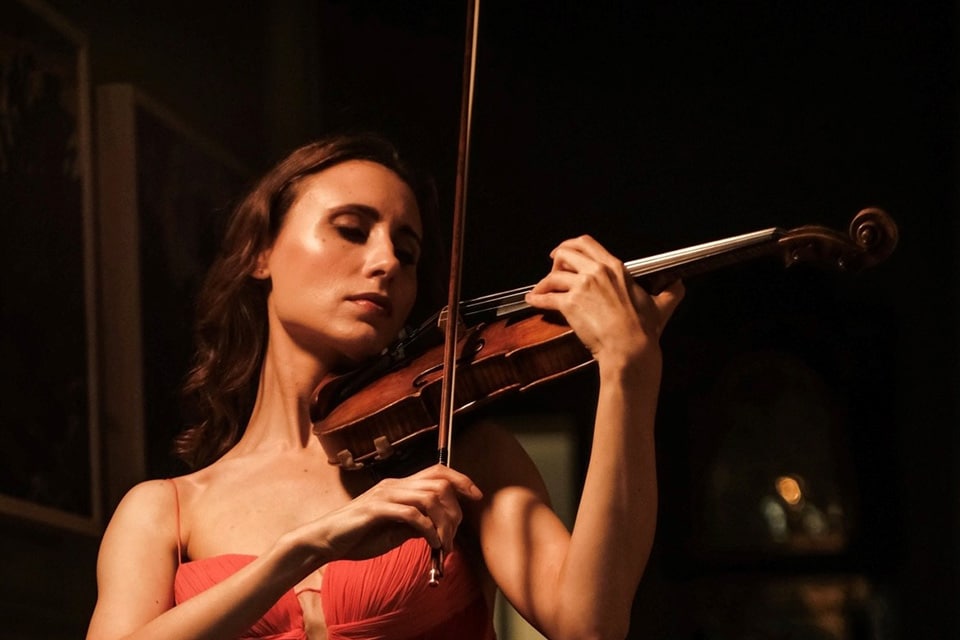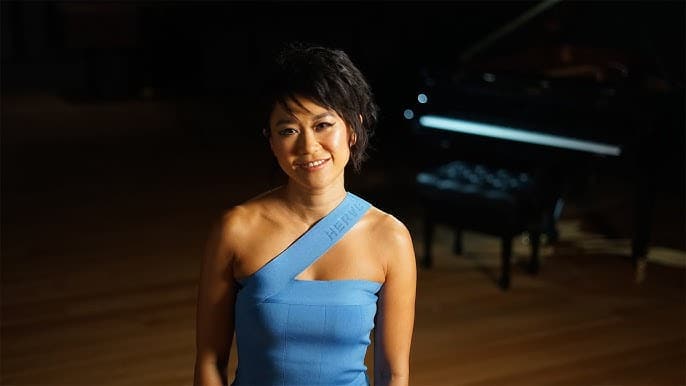Students of jury members are barred from this competition
mainThe Ferrol International Piano Competition in Galicia, Spain, has an interesting clause that should be adopted by every other contest.
It reads: ‘family members and students of the members of the jury may not participate’.
The award is organized by the well-connected Spanish pianist Pablo Galdo.






Well, yes. There are certainly enough competitions to provide opportunities for pianists to enter where their teachers are not on the jury. However, one other aspect remains: over time, the jurors get to know the pianists entering as well as their teachers, etc. One positive about that is observing the way in which those musicians can sustain their track record, enabling them to become part of the touring career and having a good amount of repertoire in their list. One thing I would like to see added in jury rules is: As a member of the jury, no juror may be allowed to post or comment about any performer in the competition they are involved with during the course of the competition.
It’s far worse to have a teacher on the jury who hates your teacher. My career was blocked by such people. The jurors should perhaps only play other instruments, or be conductors or composers or be music lovers.
In actual law case juries, members of juries cannot know any of the parties involved, and there can be no bias or discrimination. True, after a while, jury members of competitions like what we do tend to know each other. But if jury members are carefully hand selected and do not know the players, which could be a terribly difficult task to accomplish, then there may be no room for issues.
Finally.
My goodness. Good for them.
Quite right. The Dudley International Piano Competition has the same restrictions (www.dipc.org.uk)
Maybe the clause could be extended to “students of jury members or teaching assistants of jury members may not participate” 😉
Most competitions have the same clause. Never helped though!!
I suppose one challenge is how to define “student”… does it, for instance, include anybody who has ever taken a one-off masterclass with a juror? What about entrants who have studied at an institution where the juror taught at the time, but never had one-to-one lessons with him/her (and does one distinguish between a juror who was involved heavily in the life of the institution and a juror who did nothing more than a couple of hours’ weekly one-to-one teaching and never even met the entrant?)?
It also depends on adequate investigation and enforcement. Are the competitions getting someone to pore over the entrants’ and jurors’ CVs/websites and, where necessary, make detailed enquiries (e.g.: if an entrant studied at an institution at a time when a masterclass involving a juror took place, does the competition obtain the masterclass programme, in order to confirm that the entrant was not a participant?)?
Is this really run by Pablo Galdo now though? He runs a competition in the nearby city of Vigo (and just happened to play that concert with Tiempo and Argerich there). This Ferrol Competition existed for quite some time and it had links to Leonel Morales, who has one of the dodgiest reputations around in terms of just being on juries to get his and his friends’ students through. The competition stopped in 2017 and now it’s being reactivated. Maybe it was Galdo indeed? They say he’s quite dodgy too but mainly in terms of self promotion
I hope you are not comparing these 2 names. Galdo is a very good musician and a respected one, not involved in any mafias at all
It should also say lovers and patrons (bribers).
Well on the one hand it is fair. On the other hand, if you want the greatest teachers on the jury but also the greatest entrants for the competition itself, sooner or later something has to give, doesn’t it?
I know it is a small world, but is it really *that* small?
Ideally jurors will be required to recuse themselves from voting on contestants with whom they have a personal interest or relationship, as in common law.
Just a few points on this subject: 1. No piano competition, as far as I am aware, has a clearly defined and quantifiable judging system covering several playing criteria – trust me, I have served on many. Usually, it’s just ‘pick a number’ from X to Y and rate the contestants against each other. 2. In most competitions, contestants are permitted to play pretty much whatever they wish so there are too many variables at play. The program should be ‘fixed’ for the most part imho. 3. Let’s not forget that competitions have been created by piano teachers and therefore serve their needs first and foremost. It provides them with employment opportunities, prestige, and access to fine students which they often try to lure – this certainly impacts their impartialness. 4. Unfortunately, due to the flawed nature of humans in general, not just piano teachers, an unregulated ‘industry’ or sector leaves the door wide open for corruption, nepotism, etc. The above points are just the tip of the iceberg as there are far more deeply rooted issues at play here that go waaaay back. This will never change until some brave piano teachers or students demand to the change the rules of the game, but most likely it will cost them their academic careers.